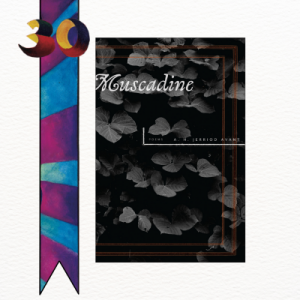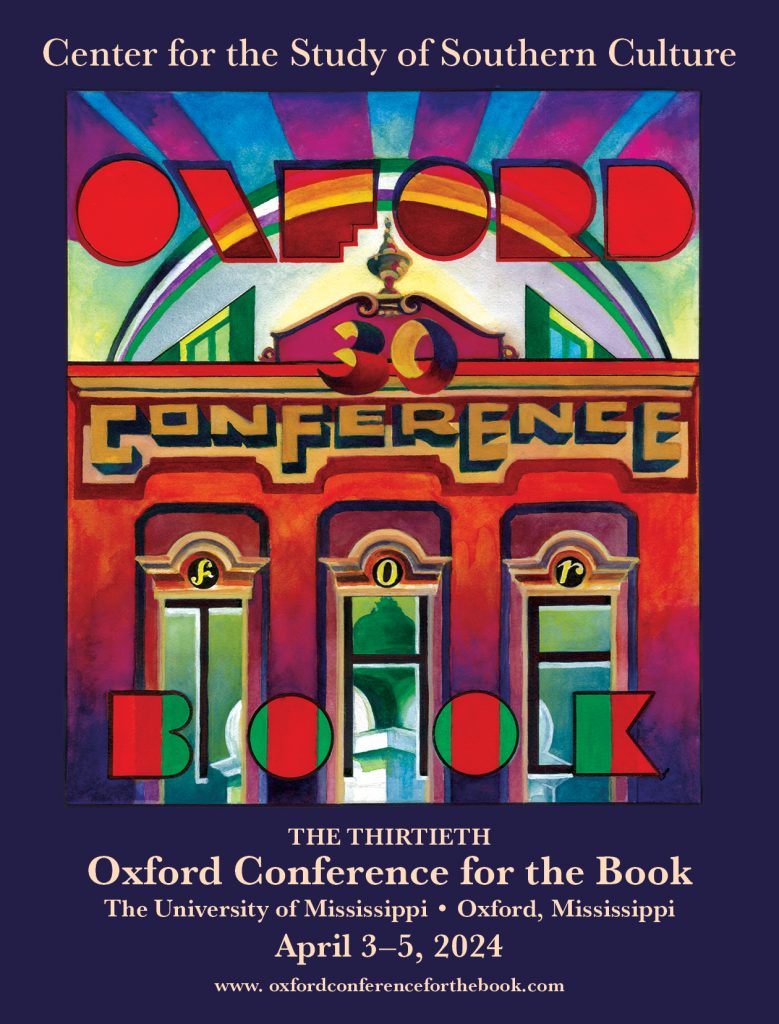A. H. Jerriod Avant’s Debut Collection Cultivates Vine of Familial Memory
 A. H. Jerriod Avant’s debut collection, Muscadine, cultivates the vine of familial memory, eulogizing our collective losses while exalting the succor of this human life, how the native grape’s “thick skin [that] teeth / pierce breaks to pour // sweetly across the tongue.” Throughout these pages, a deeply Southern sensibility balances an environmental awareness of deficit and bounty — appetite pains the stomach and delights the palette. In all seasons, the tongue’s subversive intelligence sculpts this masterwork of love, grace, conflict, and grief. This book tastes summer and the “ruins of / an afternoon” at once; it explores the language that testifies to loss while illuminating the abundance that loss obscures. Avant accentuates the sonic joys that Black Southern voices bring to bear on memorializing the present and commemorating the past. Don’t forget, he tells us. “Look how I hunger where // there is no hunger.” See how the weather changes swiftly and forever: “Look / how pops left before we // thought he was done.” But notice, too, how an echo sounds remembrance: “Listen, / how the voice of a dead man // can live.” He commands us to take the brief blooms with us, says, “Pack me a bag / I can fit in my heart.”
A. H. Jerriod Avant’s debut collection, Muscadine, cultivates the vine of familial memory, eulogizing our collective losses while exalting the succor of this human life, how the native grape’s “thick skin [that] teeth / pierce breaks to pour // sweetly across the tongue.” Throughout these pages, a deeply Southern sensibility balances an environmental awareness of deficit and bounty — appetite pains the stomach and delights the palette. In all seasons, the tongue’s subversive intelligence sculpts this masterwork of love, grace, conflict, and grief. This book tastes summer and the “ruins of / an afternoon” at once; it explores the language that testifies to loss while illuminating the abundance that loss obscures. Avant accentuates the sonic joys that Black Southern voices bring to bear on memorializing the present and commemorating the past. Don’t forget, he tells us. “Look how I hunger where // there is no hunger.” See how the weather changes swiftly and forever: “Look / how pops left before we // thought he was done.” But notice, too, how an echo sounds remembrance: “Listen, / how the voice of a dead man // can live.” He commands us to take the brief blooms with us, says, “Pack me a bag / I can fit in my heart.”
“What Deer Season Means to Me”
In the house there were always two
white deep freezers packed pretty
decent with red meat. Deer season,
the hunters and the deer would satisfy
rent in season, by meat if not by cash.
It was May, I was fifteen and we smelled
fifteen or so throughout the warm insides
of the man-handled school bus, when pops
steers quick and clear to dodge the deer
and Shirlean yells, “I didn’t even know it was
deer season.” As if deer only lived so they
could be killed during deer season.
What’s a deer outside of deer season,
except a reason for deer season?
 A. H. Jerriod Avant’s debut collection, Muscadine, cultivates the vine of familial memory, eulogizing our collective losses while exalting the succor of this human life, how the native grape’s “thick skin [that] teeth / pierce breaks to pour // sweetly across the tongue.” Throughout these pages, a deeply Southern sensibility balances an environmental awareness of deficit and bounty — appetite pains the stomach and delights the palette. In all seasons, the tongue’s subversive intelligence sculpts this masterwork of love, grace, conflict, and grief. This book tastes summer and the “ruins of / an afternoon” at once; it explores the language that testifies to loss while illuminating the abundance that loss obscures. Avant accentuates the sonic joys that Black Southern voices bring to bear on memorializing the present and commemorating the past. Don’t forget, he tells us. “Look how I hunger where // there is no hunger.” See how the weather changes swiftly and forever: “Look / how pops left before we // thought he was done.” But notice, too, how an echo sounds remembrance: “Listen, / how the voice of a dead man // can live.” He commands us to take the brief blooms with us, says, “Pack me a bag / I can fit in my heart.”
A. H. Jerriod Avant’s debut collection, Muscadine, cultivates the vine of familial memory, eulogizing our collective losses while exalting the succor of this human life, how the native grape’s “thick skin [that] teeth / pierce breaks to pour // sweetly across the tongue.” Throughout these pages, a deeply Southern sensibility balances an environmental awareness of deficit and bounty — appetite pains the stomach and delights the palette. In all seasons, the tongue’s subversive intelligence sculpts this masterwork of love, grace, conflict, and grief. This book tastes summer and the “ruins of / an afternoon” at once; it explores the language that testifies to loss while illuminating the abundance that loss obscures. Avant accentuates the sonic joys that Black Southern voices bring to bear on memorializing the present and commemorating the past. Don’t forget, he tells us. “Look how I hunger where // there is no hunger.” See how the weather changes swiftly and forever: “Look / how pops left before we // thought he was done.” But notice, too, how an echo sounds remembrance: “Listen, / how the voice of a dead man // can live.” He commands us to take the brief blooms with us, says, “Pack me a bag / I can fit in my heart.”
“What Deer Season Means to Me”
In the house there were always two
white deep freezers packed pretty
decent with red meat. Deer season,
the hunters and the deer would satisfy
rent in season, by meat if not by cash.
It was May, I was fifteen and we smelled
fifteen or so throughout the warm insides
of the man-handled school bus, when pops
steers quick and clear to dodge the deer
and Shirlean yells, “I didn’t even know it was
deer season.” As if deer only lived so they
could be killed during deer season.
What’s a deer outside of deer season,
except a reason for deer season?

















